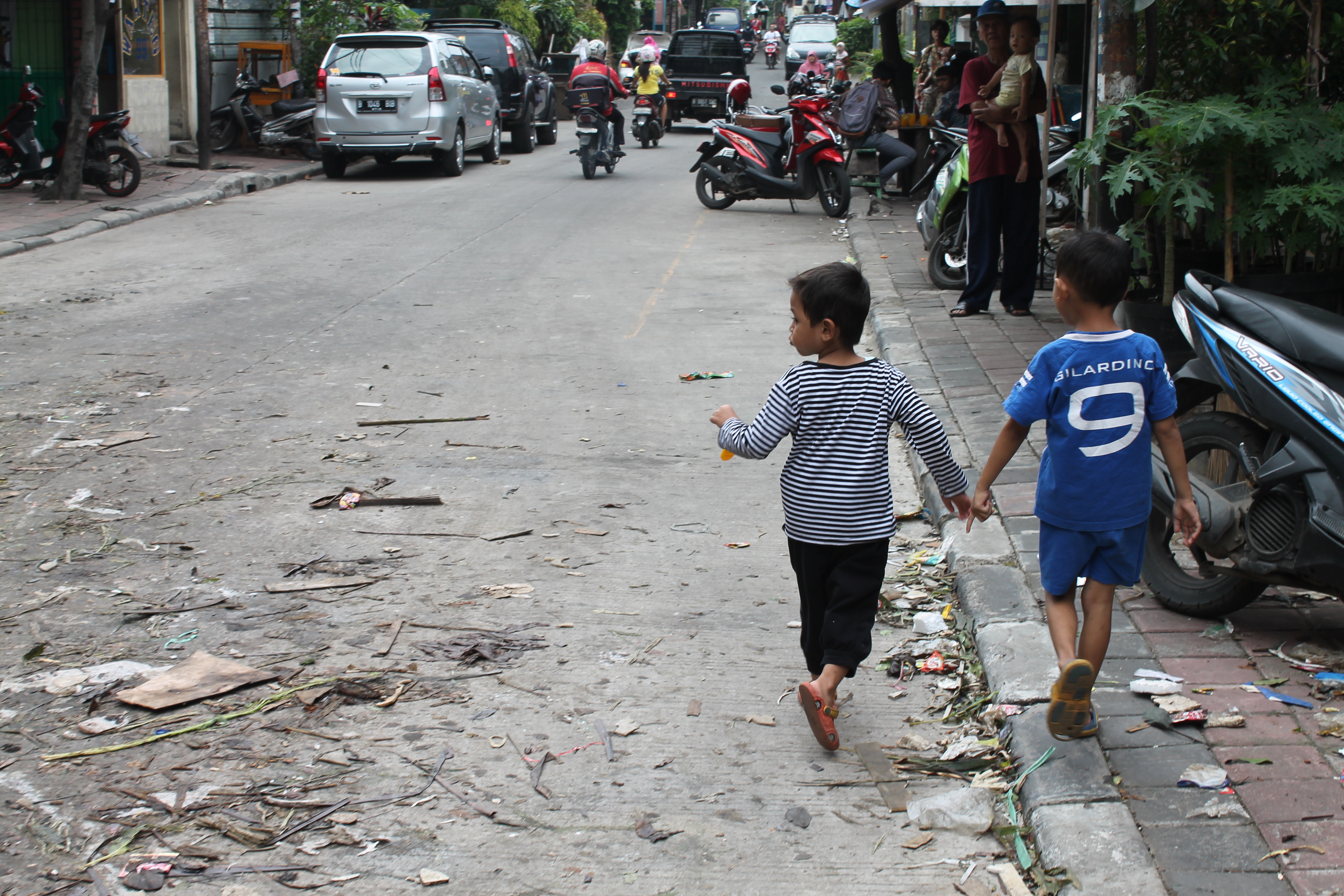by Rachael Dexter | @rachdexter64
Over the last few months, Australia’s relation with our closest neighbour has been strained, to say the least.
Two Australian citizens were executed after heading a drug smuggling syndicate nearly 10 years ago. The action has left human rights groups seething, two families broken and a once-promising diplomatic relationship in tatters.
But the event also brought to light another foreboding concern: Australians are severely under informed about Indonesia’s people and its culture.
Encompassing over 17,000 islands, 300 different native languages and a population 10 times the size of Australia, the Republic of Indonesia is a diverse nation. But the holiday mecca Bali, asylum seeker issues and now the death penalty are all many Australians know of our nearest neighbour.
The foundations of any good relationship; social, diplomatic or economic, is proper communication. But Australia’s dismal participation in Indonesian language studies means we are isolated both linguistically and culturally from properly engaging with the archipelago.
RMIT is Australia’s largest tertiary institution and promotes itself as “a global university”, yet it does not offer Indonesian language studies. Melbourne, La Trobe, Monash and Deakin University all offer Indonesian but at RMIT it is easier to learn Greek – a course funded by the Greek government – than it is to learn Bahasa Indonesia.
Head of Languages at RMIT Guosheng Chen said despite her efforts to get Indonesian courses off the ground, the problem was partially because of the University’s curriculum policy.
“According to RMIT’s policy, a class should have 30 students to start with. But I might be lucky to have ten… so it is still a pretty long way before we could have enough students to form a class,” Chen said.
RMIT relies on surveys during open days to gauge prospective university students’ interest in studying particular languages. So far, Ms Chen says those numbers have not been high enough.
Yet there is indication that some RMIT students are eager to engage with Indonesia. Figures from the Education Abroad Office (EAO) showed 5% of outbound students participating in exchange programs or study tours went to Indonesia in 2014.
EAO Manager Craig Wallace said RMIT sent more students to Indonesia on ACICIS short term courses than any other participating Australian university last year.
Sammi Taylor, a first year RMIT student, has studied Indonesian for 11 years throughout primary and secondary school. The barriers preventing her from continuing the language through her undergraduate degree are fuelling her concerns of losing her language skills.
Although RMIT offers a pathway into Indonesian language via cross-institutional study at Melbourne University, timetable clashes and extra costs prevent this from being taken up by many students.
“Taking on another subject, especially at another University – the costs are different. It was just going to send my HECS debt through the roof,” said Sammi.
Ms Chen said RMIT’s course structures with limited space for electives subjects means it lags behind other universities when it comes to foreign language.
“A lot of disciplines only allow two free electives, so students will use these electives to do a lot of courses which give them immediate benefit, or immediate knowledge and skills they need,” she said.

The Indonesian void is not isolated to RMIT. Sydney, Australia’s unofficial capital, has only one remaining university offering Indonesian.
For years experts have decried the dearth of Indonesian language courses in Australian higher education institutions. Professor David Hill lectures in South East Asian studies at Murdoch University. In 2012 he authored a report which showed the numbers of students studying Indonesian at University were “plummeting”.
Spurred on by negative news stories like the Asian financial crisis, the Bali and Jakarta bombings and the Boxing Day tsunami, rates of Indonesian language enrolments at University level fell by 40% in the 2000-2010 decade.
While this decline has now plateaued, today there are more students at University at large. Therefore, Professor Hill said the percentage of students studying Indonesian is still getting smaller and smaller.
“It’s still not reviving anywhere near what it was at the beginning of the century,” he said, “there were less students studying Indonesian in 2009 than there were in 1972”.
The case of Myuran Sukumaran and Andrew Chan’s executions has angered many Australians, some taking to social media to announce plans to boycott the country. But Professor Hill is optimistic society will reach a point where the “temporary prominence of a particular issue, won’t obscure all of the other elements of the relationship, many of which are positive”.
“Australia’s relationship with Indonesia is absolutely paramount – if that relationship is not working well, it impacts on so many aspects of Australian life and engagement beyond,” he said.
“We would have great difficulty relating positively to the other countries of Asia if we can’t manage that with our next door neighbour. It’ll affect our relationship with Singapore, Malaysia, Myanmar and other countries”.
He added Australia’s monolingual tendencies meant young people today will miss out on serious career and business prospects.
“My own view is the days when Australian graduates sit back and think ‘everybody speaks English, that’ll be sufficient’ are gone,” he said.
Both Ms Chen and Professor Hill agree there needs to be more effort from the government, media and Universities to seriously commit to Indonesian language and understanding. For now the chicken and egg situation at RMIT means there is little incentive for students to take up what is one of the easiest and most relevant languages for Australians to learn.
Indonesia and Australia cannot see eye to eye unless they make an effort to understand one another, and communication is the first step.
Photos by Rachael Dexter


